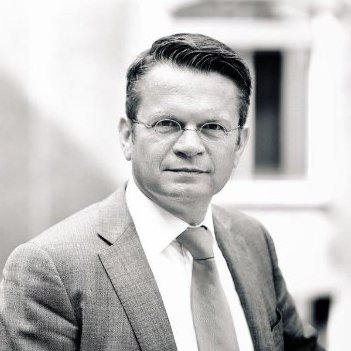Leon Wijnands, global head of sustainability, talks about how the Dutch bank wants to do away with a sustainability department by making it core to the business
ING has aligned sustainability to the core of its business, and since 2013 has fully integrated its CSR strategy with the rest of its business. The Dutch bank, which has more than 52,000 employees in over 40 countries, has taken the view that sustainability should not be a separate function, but completely embedded for maximum impact. “We have a balance sheet of well over €800bn,” said Leon Wijnands, global head of sustainability at ING, “If we could use 10% of that balance sheet in a sustainable way, we could have a huge impact.”
With the goal set, the challenge has been engaging customers and employees on the vision. The way to do this, the bank has found, is through individual empowerment.
Wijnands said the bank is about “inclusion” and financial access for all, including making it easier for refugees and the elderly to open bank accounts. ING has decreased its range of products, but increased its range of services, now providing financial education for customers as well as financial demonstrations and “health checks”. ING wants its customers to be financially fit, and a large part of its sustainability strategy has been to educate people from a young age. Wijnands said the bank used to have a programme with UNICEF providing educational opportunities for pastoralist children in Ethiopia and other locations. “While successful, it didn’t have a lot to do with banking.”
ING decided to move its focus from philanthropy to empowering young people, helping them develop life skills and financial know-how. Still in partnership with UNICEF, the focus is now on investing in the future of young people. “We used to measure the number of children going to school,” said Wijnands, “Now we measure the number of adolescents empowered.”
In 2013 ING stopped publishing its separate sustainability report as part of its strategy of integrating sustainability throughout the company. Now it reports and discloses its efforts in its annual report. “We have one strategy and one report,” said Wijnands. “Our goal is that the sustainability department isn’t needed anymore.”

Leon Wijnands, global head of sustainability, ING
It is important that ING’s customers are financially fit, Wijnands said, as it means they make safer business decisions for the future and are less likely to fall into arrears in paying back loans. ING also sees an opportunity to help future-proof its clients by financing their transitions to a more sustainable business profile. “This has the opportunity to expand our business and raise our risk profile, and grow our lending book. To support our sustainable finance programme and fund this portfolio, we designed a green bond framework meeting the highest standards on transparency and disclosure. Our green bond was over €1.2bn last year.”
Wijnands said engaging employees is key to making ING work for the better. This involves everything from encouraging employees to commute using electric vehicles to behaviour-change at work. Wijnands said this mean focusing on everyday behaviours and seeing how employees are able to go the extra mile for social purpose. “More colleagues want to join the winning team. Success attracts success.”
ING decided to link its sustainability strategy to the UN’s Sustainable Development Goals, focusing on SDG 8 (decent work and economic growth) and SDG 12 (responsible consumption and production). But Wijnands says the business is “linked to all SDGs” indirectly, through its customers. “If we succeed in future-proofing our clients or their businesses, we succeed in future proofing our own business.”
Leon Wijnands recently appeared at a panel on boards and CSR at Ethical Corporation's Responsible Business Summit Europe in London.
Integrated reporting responsible investment financial inclusion SDGs
